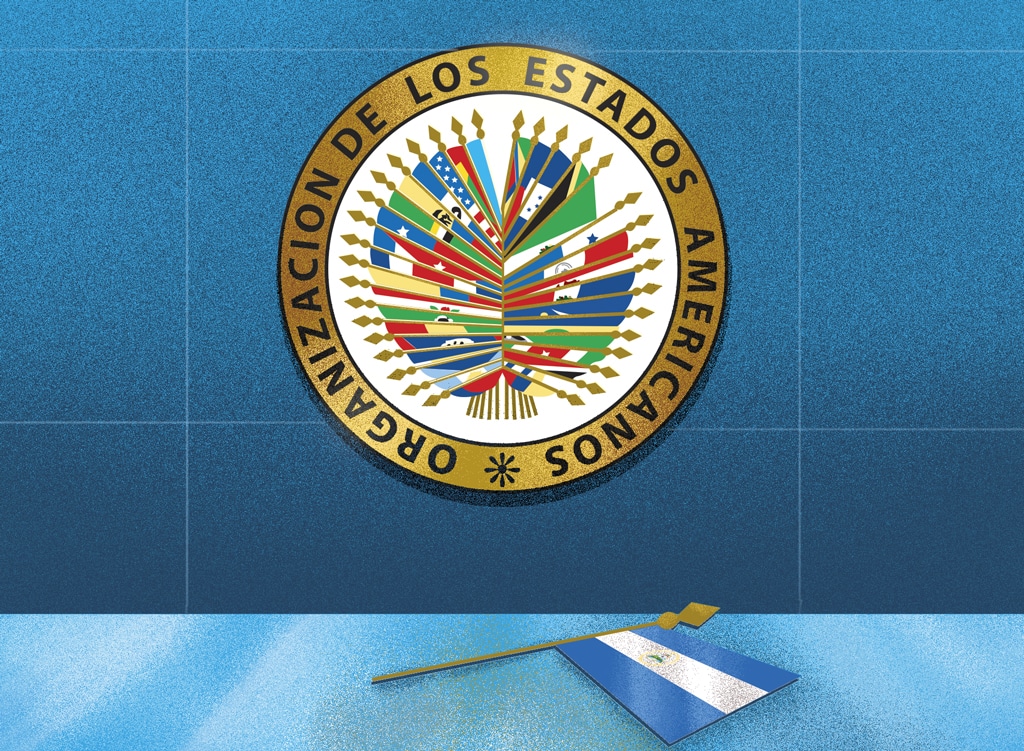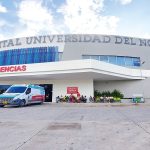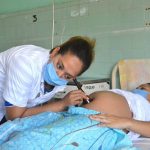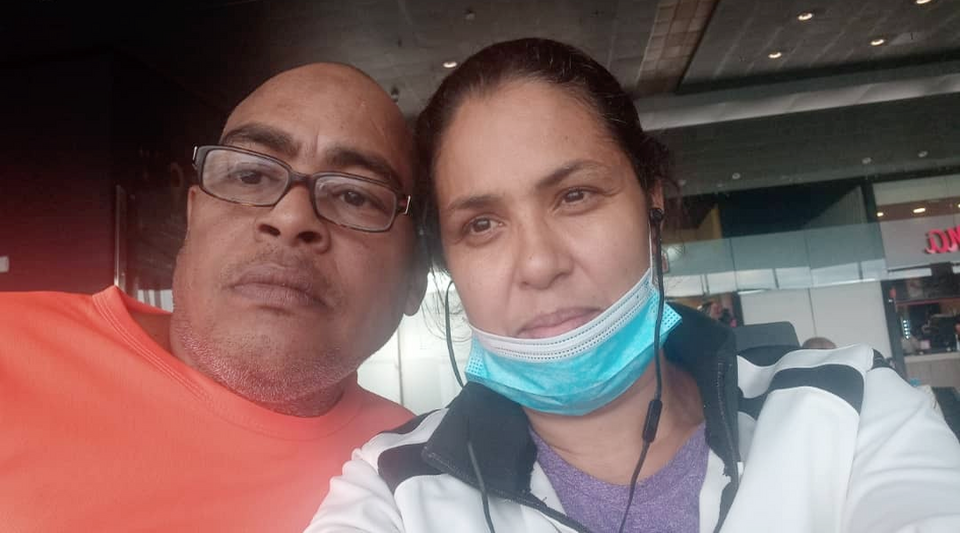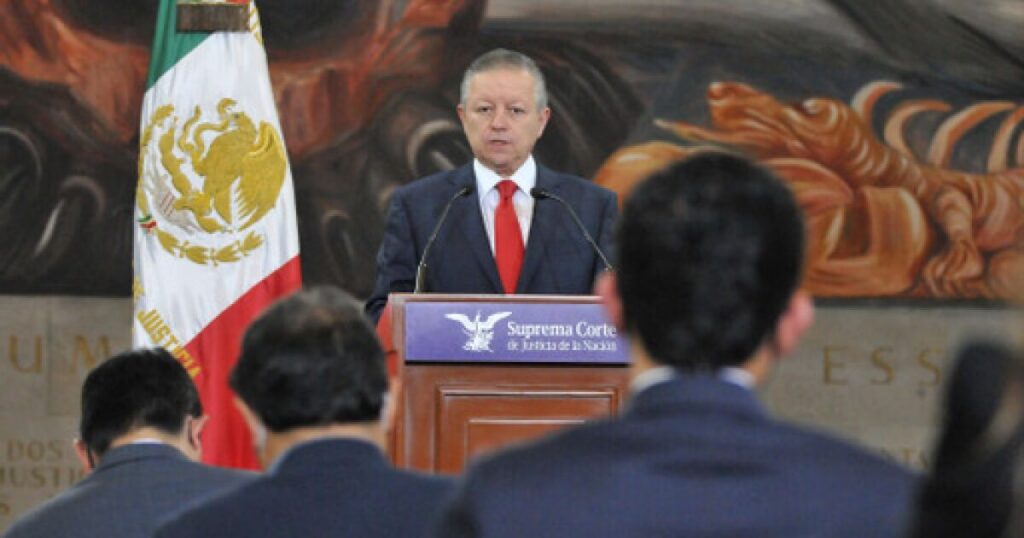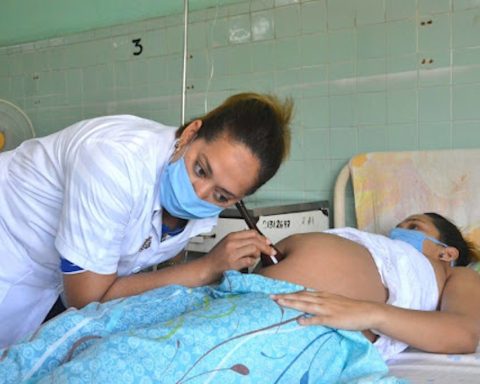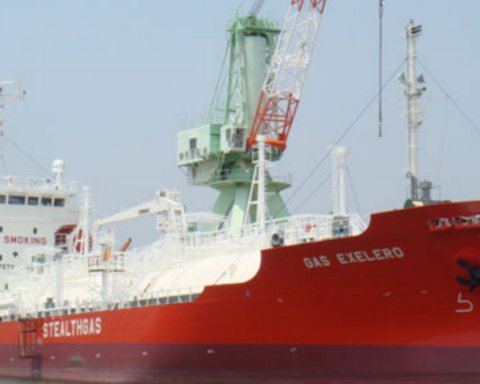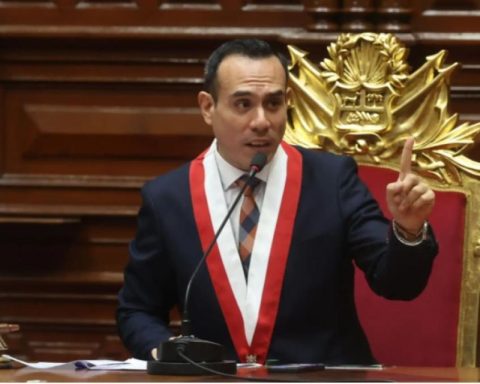This Friday, February 18, the Permanent Council of the Organization of American States (OAS) will once again resume the debate on the crisis of political illegitimacy that surrounds the regime of Daniel Ortega and Rosario Murillo, after the votes of November 7, carried out without political competition, transparency and in the midst of a repressive wave of the regime.
OAS diplomatic sources revealed to CONFIDENTIAL that in this Friday’s discussion there will be no vote on a resolution on Nicaragua, but a series of interventions by the permanent representatives framed in the crisis that the country is experiencing due to the development of political trials against prisoners of conscience imprisoned in The Chipote and convictions based on “evidence ridiculous” denounced by defense attorneys, legal experts and family members.
The interventions of the permanent representatives before the OAS will also address the drama of the relatives of the prisoners of conscience about the inhumane conditions in which they are being held, which worsened as a result of the death of the former guerrilla, retired brigadier general and political prisoner. by orders of Daniel Ortega and Rosario Murillo, Hugo Torres Jimenez, whose death occurred on February 12, after more than two months in which the regime kept his whereabouts and health condition hidden.
my comment on #This week: The death of political prisoner Hugo Torres is a national tragedy, a bell to the national conscience, a cry of protest demanding freedom for all political prisoners https://t.co/bnPlWAYvMZ via @Youtube
– Carlos F Chamorro (@cefeche) February 14, 2022
In addition to the representatives before the regional organization, interventions are expected from Secretary General Luis Almagro and the Inter-American Commission on Human Rights, an organization attached to the OAS.
Diplomatic sources also reported that after the interventions, a declaration signed by various member states of the Permanent Council will be released, in a political reaction to the worsening of the Nicaraguan crisis.
On February 12, the OAS General Secretariat issued a statement condemning the prison conditions that aggravated the health situation of retired Brigadier General Hugo Torres, leading to his death.
“The General Secretariat of the OAS considers it abominable to keep political prisoners with terminal illnesses, without necessary medical assistance, violating their fundamental rights,” cites part of the statement.
Statement from the General Secretariat of the @OEA_oficial on the death of political prisoners in #Nicaraguahttps://t.co/Bfi8PtEdYj pic.twitter.com/1lxAXLPgjB
— Luis Almagro (@Almagro_OEA2015) February 12, 2022
This Tuesday, the Canadian mission to the regional body released a note verbale reporting on the request to meet this Friday in order to address the situation in Nicaragua.
“The permanent mission of Canada presents its compliments to the president of the Permanent Council of the Organization of American States and, on behalf of the permanent missions of Antigua and Barbuda, Chile, Costa Rica, Ecuador, the United States and on its own behalf, respectfully requests that a an extraordinary meeting of the Council on the subject of ‘The situation in Nicaragua’ this coming Friday, February 18”, quotes the note.
Currently the pro tempore presidency of the Permanent Council is in the hands of the island of Saint Kitts and Evis, whose permanent representative is Warren Everson Alarick Hull. The Canadian mission, together with Chile, are the coordinators of the working group at the OAS to address the crisis in Nicaragua.
First session after the failure of Almagro’s efforts
This will be the first session of the OAS after Secretary General Almagro’s report on his failed efforts to agree with the Ortega regime the arrival in the country of a high-level mission from the regional organization, with which the negotiation of new elections in Nicaragua would be negotiated with transparency and credible national and international observation.
“Proceedings were made at all levels. Communications were sent to Commander-in-Chief Daniel Ortega himself, and institutional contacts were also made at the highest level with the Nicaraguan Foreign Ministry and its dependencies. Consultations were also made through political channels at the highest level and through the General Secretariat. Also through the Nicaraguan missions to the OAS,” Almagro reported at a Permanent Council session held on January 19.
“From the steps taken, approval has not been received for the sending of the high-level good offices mission; that is, no formal response has been received in this regard,” the Uruguayan diplomat stressed.
The efforts of Almagro was an ordinance established by a resolution of the Permanent Council approved on December 8, 2021, in which it was established to insist through diplomatic channels to agree with the Ortega regime on a way out to unblock the political crisis that torments Nicaragua.
